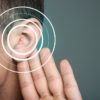Let’s Talk: How To Be A Better Communicator
Communication – it makes the world go round, right? Clear communication is important in almost every aspect of life, from personal relationships to professional success to accomplishing everyday activities..
Many jobs require strong communication skills, and typically, you'll enjoy more enriching interpersonal relationships with the people in your life if you're able to communicate effectively.
But communication is far more than just speaking to someone or writing words on a page. In fact, there are dozens of different types of communication. Knowing these types of communication, and understanding how they help you become a better communicator is a key to success.
So what entails good communication? How do you know if you're a good communicator or if you could use some work? What are the types of communication you should be aware of?

We're here to answer all of those questions. Here's what you need to know.
What Are The Different Types Of Communication?
Some suggest that a majority of the communication we share with others comes from our body language – or our non-verbal cues.
According to the pioneer researcher of body language Albert Mehrabian, verbal communication accounts for only 7 percent of total impact in communication, while 38 percent comes from vocals (such as tone of voice, inflection, and other sounds), and 55 percent comes from nonverbal communication.
All of that to say, there's more than just one way to communicate. In fact, there are dozens, but for the sake of brevity, we'll go into some of the most common and most important formats for communication.
Verbal Communication
Verbal communication is exactly what it sounds like: talking. Verbal communication is simply speaking to another person to communicate. The medium for verbal communication is oral, but in reality verbal communication is so much more than just words.
Verbal communication encompasses both how you deliver the message and how you receive a message.
Verbal communication is a soft skill, rather, an interpersonal skill like listening or empathy, among many others. Soft skills, like verbal communication are personal attributes that characterize how a person interacts with someone else.
What goes into your verbal communication is important, and can significantly affect how your message is received. This includes things like speaking clearly, choosing words carefully, using an appropriate tone, considering the audience in front of you, and responding appropriately to others' communications.
Written Communication
Written communications encompasses all printed messages including things like e-mails, letters, training manuals, operating policies, notes, text messages, memos, and dozens of other things. All of these things play a central role in our lives.
But why is effective written communication important? Because it sends messages that are flat, factual, and lacking elements of other communication that can enhance the message, like tone, body language, voice, and gestures.
Written communication, unlike verbal communication, doesn't take place in real-time. It can be constructed over a long period of time, giveing you however long you need to get your message across. This is a benefit!
You're not put on the spot and forced to reply immediately. You're given time to effectively communicate. Additionally, written communication provides proof and documentation, things you certainly need in the business world, and occasionally in your personal life.
Written communication is also a great way for getting a message to a large group of people. Whereas, verbal communication often happens in a one-to-one format, written communication is able to happen on a one-to-many platform.
Non-Verbal Communication

What many people don't consider when they think of communication is the non-verbal cues they're giving off. These cues play a large part in your communication, how people respond to you, and being an effective communicator.
A majority of our communication is nonverbal, with it accounting for about 93 percent of our daily communication.
But, how does this happen, and what exactly is non-verbal communication? It's primarily made up of facial expressions and body language such as eye contact, pace of speech, crossed arms or legs, body posture, and more. These cues can tell you a lot about what a person is saying.
Pay attention to the differences in what you're saying and what you're doing. Do your physical responses match up with your verbal communication? Like it or not, your non-verbal cues are sending a message.
According to a study from Mehrabian, about 7 percent of a receiver's comprehension of a message depends on the actual words being spoken, 38 percent depends on paralanguage (like tone), and 55% percent on based on body language. If that's true, your non-verbal cues are dictating your communication almost entirely. It's possible that you're sending off silent messages without ever really saying a word.
Active Listening
We know what you're thinking. How can listening be a form of communication when you're not actively expressing thoughts or ideas?
First, it's important to recognize that you're probably not actively listening. There's a difference between active and passive listening, and active listening certainly counts as a form of communication. In fact, some people even cite active listening as the most important part of communication.
But why is that? When you listen to someone speak, you're engaged with them and what they're saying, and you're making an effort to understand exactly what they're trying to express.
You're not just hearing — you're listening.
We hear about 450 words per minute when speaking to someone, but how much of that is absorbed? If you're listening passively, you're only picking up on and absorbing about 17-25 percent of what they're saying.
How can you effectively respond to or work with someone if you're not even absorbing most of what they say? With active listening, you'll absorb much more than that 17-25 percent, making for much more effective conversation.
How Can You Grow Become A Better Communicator?

Now that you know there are numerous types of communication (and trust us, there's so much more that we didn't get into), you're probably thinking that you could use a little improvement in the communication department.
So how exactly do you become a better communicator? Is it as simple as just talking more or less?
There are numerous practices you can implement to become a better communicator. See also our piece on methods of becoming a great communicator.
Verbal Communication: Tie Up The Loose Ends
If you're looking to tweak your verbal communication, start with speaking clearly. No one will understand you if you mumble or speak too softly.
Choose your words carefully so that they're appropriate by anyone's standards and practice using words that show that you're an intelligent person with a grasp on the English language.
Additionally, consider who you're speaking to. A great communicator always considers their audience, and verbal communication is no different. How you speak to a child is different than how you'd speak to your boss or how you'd speak to your best friend. Consider who you're talking with and adjust your conversational flow from there.
Responding appropriately and intelligently isn't always the easiest thing, but you can always take time to think before you speak. Put these things into practice and you'll be on your way to becoming a much better verbal communication
Body Language: Understand Your Cues
As we noted, you're probably communicating a message without even knowing it just based on how you're sitting, standing, gesturing, or what your face is doing. In order to become a better communicator, you'll need a firmer grasp on what your body language cues are saying.
Consider your eye contact. Are you looking a person in the eye when you speak? How about your facial expressions. Think about what your facial expressions are saying. Are you frowning? Do you come off upset or stressed? Do your facial expressions match the tone and your verbal communication?
Consider using your body language and facial expressions to show that you're in a warm and welcoming mood. A smile, uncrossed arms, and eye contact can go a long way and can make the people you're communicating with feel exceptionally comfortable.
Listening: Become an Active Listener
Being an active listener isn't only about focusing on your subject. Instead, you must implement several different things to be fully listening to someone.
First, focus is definitely a must. Tune in to who is speaking. Avoid distraction by looking at whoever is speaking to you, and if you find your mind wandering, reel it back in. Also, don't let someone move past something you don't fully grasp. If you don't understand, say so. Let them know you want a different explanation to fully understand what they're saying. Showing interest and repeating something back to a speaker, in your own words, can also help you zero in on what your subject is saying.
Communication: Why it Matters
The way we interact with people is how we stay connected with the world around us. Whether it's verbal, written, or non-verbal communication, our forms and methodologies of how we communicate are hugely important.
As always, there's plenty of room for improvement for everyone, especially when it comes to communication. Becoming a good communicator who's open to active listening, different types of communication, and empathy can get you far in life.
Not only will you see more success professionally, you'll also experience meaningful, richer relationships with the people you care most about!
Recent Articles

Simple, Powerful Methods for Becoming a Great Communicator
A fine orator can make the world dance to his tune. With quick wit, a persuasive voice, and sharp twist to his words he can shift a room’s point of view. Think about how some of world's greatest (and worst) leaders have swayed entire nations with their words. JFK convincing…
Speech and language are essential components of communication and interaction, playing a critical role in…

Four Ways to Communicate Change in the Workplace
A new supervisor, a department consolidation, a new compensation policy- poor communication around these big…

Where Communications Majors Earn the Most (and Least)
"Communication works for those who work at it." – John Powell For those considering a…

Speaking The Unspoken: How The Wordless Art of Body Language Can Make You A Master of Communication
Are you a good communicator? Clear speaker? Is your grasp of the English language better…

Effective Listening and How to Be a Better Listener
Public speaking classes have existed for decades. Our society assigns a lot of value to…

Can You Hear Me Now? Hearing Loss and It’s Effects On Communication
There’s no denying the importance of the five human senses – touch, sight, hearing, smell,…

Five Body Language Mistakes That Can Sabotage Your Job Interview
It’s the big interview for your dream job and you’re excited to demonstrate your qualifications.…

Marketing as Communication and What It Means for Your Business
Marketing, as a general rule, is a vast discipline. Is it research, design, and production?…
